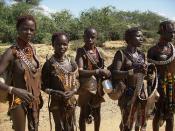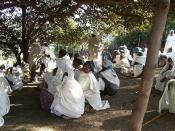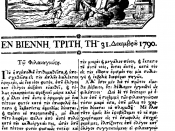Ethiopian New Year Finally, after 13 months we have reached 1994. Yes, for Ethiopians around the world and in Ethiopia, Sept. 11th marked the beginning of a new year. There are a few countries worldwide that use a different calendar other than the Gregorian one. For example such as China which uses theââ¾ and Malaysia. These are all calendars, which are unique to their country. Similarly, Ethiopia is the only country left which still uses the Julian calendar. Unlike the United States and the majority of the rest of the world, Ethiopians use the Julian calendar which has a number of differences from the Gregorian calendar such as the major holidays the division of the months and theââ¾ Ethiopia uses the Julian calendar, which is divided into 12 months of 30 days. There is a 13th month, which is five or six days at the end of the year.
Hence the number of days in the year are still equal to 365 such as the Gregorian calendar. In comparison to the Gregorian calendar the Ethiopian Calendar is seven years and eight months behind. Even though this is the case the Julian calendar is used in Ethiopia in certain places. For example all business offices, banks and international organizations use the necessary calendar. But, for the locals the calendar they use is the Julian calendar.
As far as the holidays go, the same major holidays that are celebrated there but they are on different days. To name a few, New Year, which is called Enkutatash, is celebrated on September 11th, Christmas, which is called Gena, is celebrated on January 7th, Easter which is called Fasika is on April 27th. While these are some of the common holidays there are also other holidays that are celebrated only in Ethiopia such as Timket which is Christâ≢s baptism, January 19th and Maskal which is another Christian festival that celebrate the finding of the True cross on which Christ was crucified. Since Ethiopia is 35-40% Orthodox and 40-45% Muslim there are a number of holidays related to the religion.
In conclusion as I mentioned above due to a difference in the calendar used the Ethiopians celebrate common holidays with the rest of the world but on different dates. And even though the Julian calendar is still a couple of year behind the Gregorian calendar is still used in Ethiopia for various purposes.





